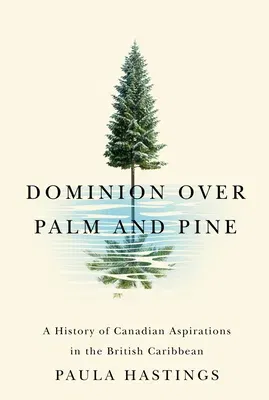From the expansionist fervour of the late nineteenth century through
both world wars and the Cold War, a varied and ever-changing group of
dreamers campaigned for Canada's union with the British Caribbean
colonies. They hoped to diversify Canada's climate and agricultural
capabilities, spur economic development, boost the nation's autonomy and
stature in the Empire-Commonwealth and the world, temper American power,
and secure a tourist paradise. Dominion over Palm and Pine traces the
transnational ebb and flow of these union campaigns, situating them in
the global history of colonialism and white supremacy, Black activism,
and decolonization. Paula Hastings centres the British Caribbean in
historical narratives that rarely take account of the region,
challenging us to rethink the history of Canadian expansionism and its
entangled relationship with nation building, the struggle for
sovereignty at home and abroad, and Canada's evolving role and
reputation on the world stage. Widely conceived, the brokers of Canada's
international histories included a multiplicity of actors who shaped the
evolving contours and outcomes of the debate: Canadian legislators,
civil servants, businessmen, and social justice activists; Caribbean
migrants, intellectuals, and anti-colonial nationalists; and British
colonial officials, absentee planters, and politicians.Canada's lack of
an overseas empire is often vaunted as a national characteristic that
sets Canada apart from the United States and the old European powers. In
excavating the dogged resilience of Canadian designs on the Caribbean,
Dominion over Palm and Pine unsettles notions of Canadian goodness that
rest on this self-righteous observation.

